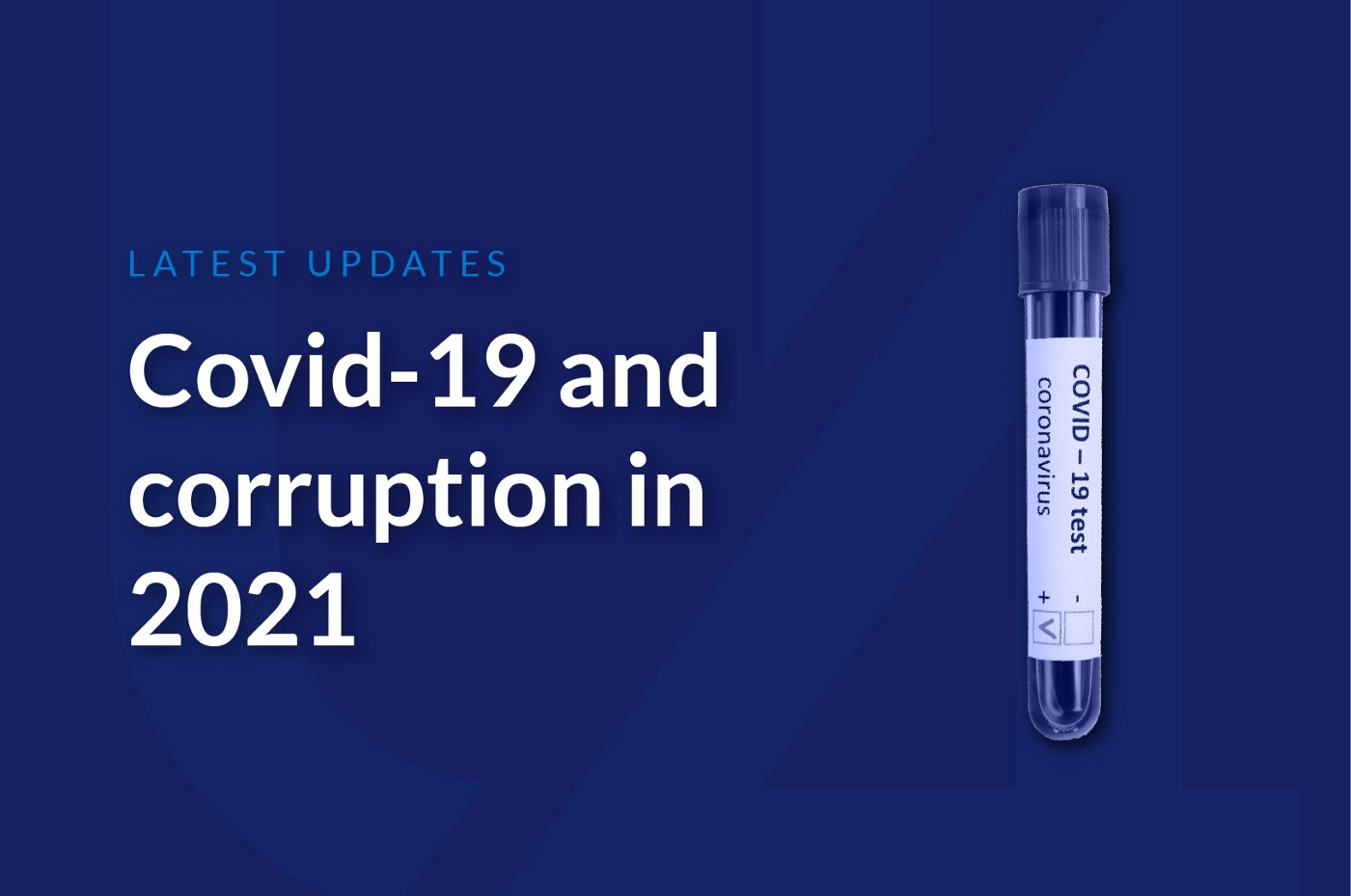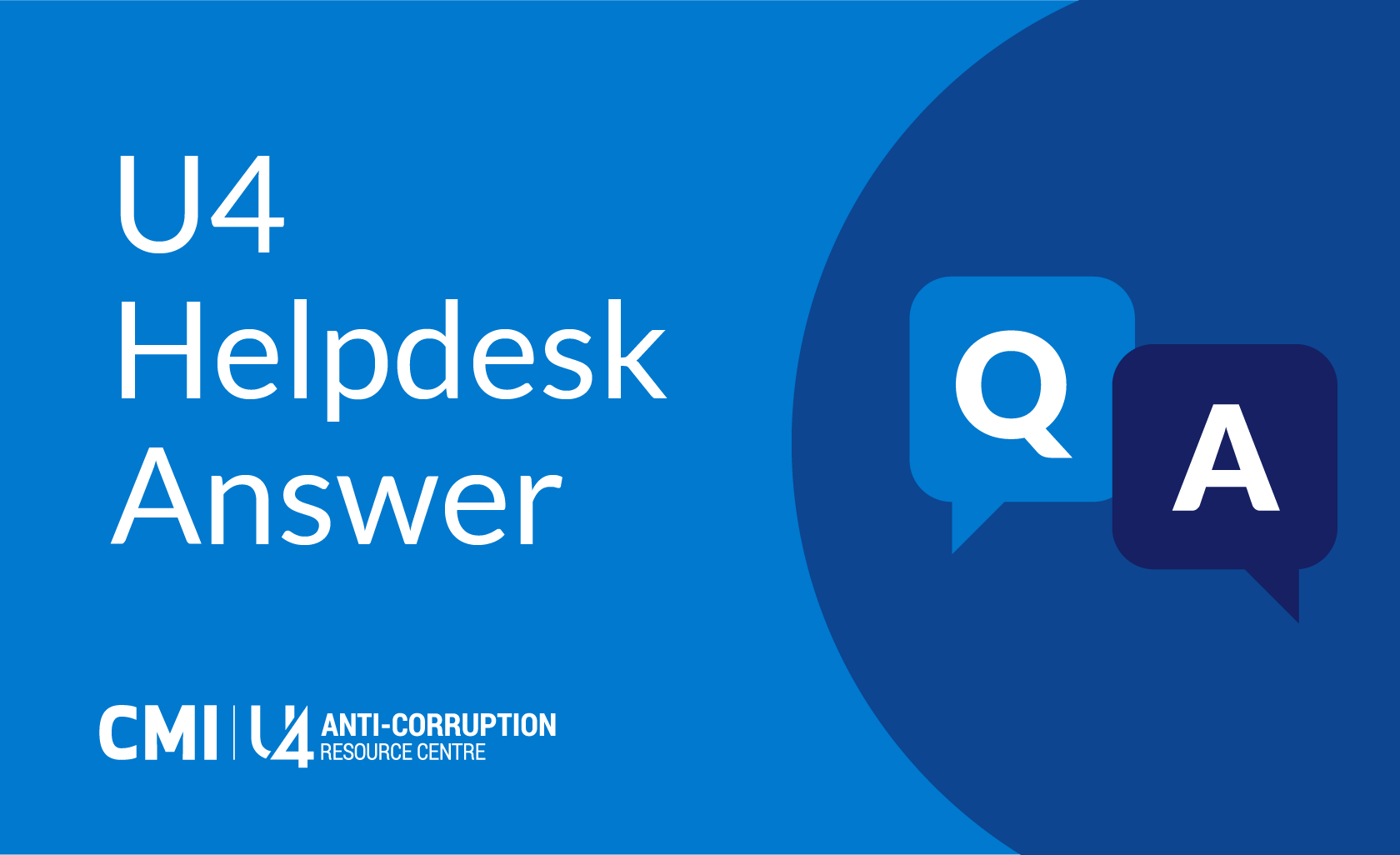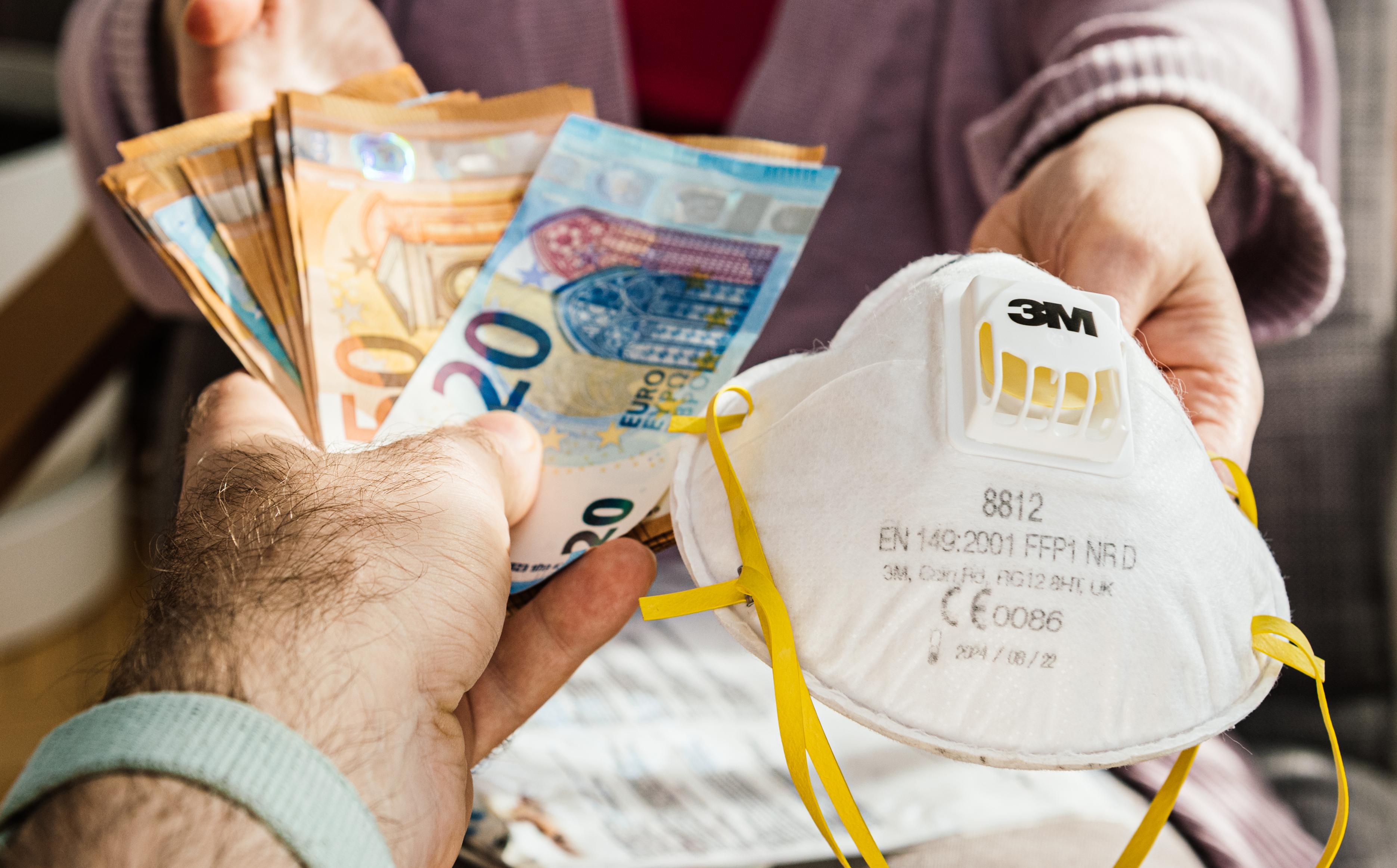Blog
Covid-19 corruption in 2021: April–May developments

This update is part of an ongoing series, where we recount what’s been happening with Covid-19 and corruption in 2021.
India’s second wave of Covid-19 has been devastating over the past two months, with the Lancet stating, in no uncertain terms, that the Indian government’s mismanagement of the pandemic is costing lives. And as the disease continues to rage worldwide, in late May WHO Director-General Tedros reminded us that ‘no country should assume it is out of the woods,’ with a forecast that more people are expected to die in the next three weeks than last year’s total.
The World Health Assembly, held between 20 May and 1 June, agreed to hold a special meeting in November, focused on the benefits of developing an international pandemic treaty. Such a treaty could increase transparency in production and supply chains and strengthen the International Health Regulations.
In the meantime, Covid-19 continues to unleash crises in public health and the rule of law, creating spaces in which corruption can proliferate. Here’s what has been happening across the world.
April–May 2021
- Recent reports have shown that the terrible impact of Covid-19 in Bangladesh, Malawi, Cambodia, and India is due in large part to endemic corruption, which was weakening health services even before the start of the outbreak.
- India’s deadly second wave has gone hand in hand with corruption. The country has witnessed profiteering amid the oxygen crisis; a rise in bribes and hefty fees to access hospital beds, as well as artificial scarcity for such beds; and the growth of black markets for essential medical items and services. Under current conditions, India could see over one million Covid-19 deaths by August.
- Vaccine hesitancy is a persistent challenge. A survey across six African nations found that only a third of people strongly agreed that the vaccine is safe and effective. Lack of trust in institutions, in part due to corruption, can contribute to reducing public confidence in vaccines.
- Corruption in Covid-19 procurement and contracting is widespread. In South Africa, the Special Investigating Unit (SIU) has reported on investigations – related to irregularities in Covid-19 procurement – with a total value of 14.2 billion rand (around US$1 billion). Investigative journalists in Norway also found that obscure procurement and contracting practices led many countries to pay inflated prices for Sputnik V vaccines: sometimes more than twice their original value. They tracked the Russian vaccines as they were channelled via a UAE-based company to Ghana, Pakistan, Guyana and Iraq, among other countries.
- The threat of corruption continues to pervade vaccine trials. Transparency International’s latest report analysed 86 registered clinical trials across 20 different Covid-19 vaccines and found that 88% of them did not publish their trial protocols. In other words, little is known about how these clinical trials have been run, which has implications for both accuracy and public trust.
- The world has started to witness the wastage of Covid-19 vaccines. Vaccine rollout has been slow in Guatemala, partly due to government mismanagement. As of 13 May, there were 321,600 doses in the country; many are likely to expire in June before they can be administered. These failings, together with alleged corruption scandals since the start of the outbreak, are driving public discontent.
- Covid-19 related corruption is undermining democracies. El Salvador is a case in point. On 5 May the government passed a new law granting immunity to officials accused of mismanaging funds related to Covid-19. The law gives room for Bukele’s government to shut down any public inquiries into his administration and finances.
As evidence of Covid-19 related corruption is mounting, many have sought to tackle corruption risks through different means:
- In Bengaluru, India, technologists and bureaucrats are set to transform the Covid Hospital Bed Management System (CHBMS) into a unified dashboard, which can combine information on bed management, private hospitals’ information management systems, and information on oxygen and ambulance availability. They aim to increase transparency and reduce the scope for fraud, including bribe-for-bed scams.
- Colombia’ ministry of health just published a dashboard on the country’s Covid-19 vaccination plan. The dashboard will allow the public to check the plan’s progress in real time. The data can be segregated by sex and prioritised groups. It also shows the distribution points at subnational levels and provides information about which insurers and providers are involved.
- The US announced the establishment of the COVID-19 Fraud Enforcement Task Force, under the Department of Justice (DOJ). The Task Force will work with the DOJ’s interagency partners to share insights from prior enforcement experiences, support agencies with their fraud prevention efforts, contribute to the investigation and prosecution of domestic and international criminals, prevent the exploitation of government assistance, and recover stolen funds.
- Journalists strive to uncover corruption, despite the risks to their lives and personal safety. In Bangladesh, journalist Rozina Islam was arrested, and later released on bail, for “allegedly attempting to ‘collect sensitive government documents and taking photos of them’ at the Health Ministry.” It is believed that she was targeted by the government because she reported on corruption and mismanagement during the pandemic.
- More voices are joining the call for Covid-19 vaccine patent sharing. In early May, the Biden government announced its support for a waiver to temporarily lift patent protections for Covid-19 vaccines.
Anti-corruption is key to ensuring that Covid-19 is successfully contained and becomes a thing of the past. If your government, company or NGO has any initiative related to countering corruption in Covid-19 response and recovery, we would like to know about it. Write to daniela.cepeda@cmi.no.
You can find our update of developments around Covid-19 corruption from January–April 2021 here.
Disclaimer
All views in this text are the author(s)’, and may differ from the U4 partner agencies’ policies.
This work is licenced under a Creative Commons Attribution-NonCommercial-NoDerivatives 4.0 International licence (CC BY-NC-ND 4.0)

